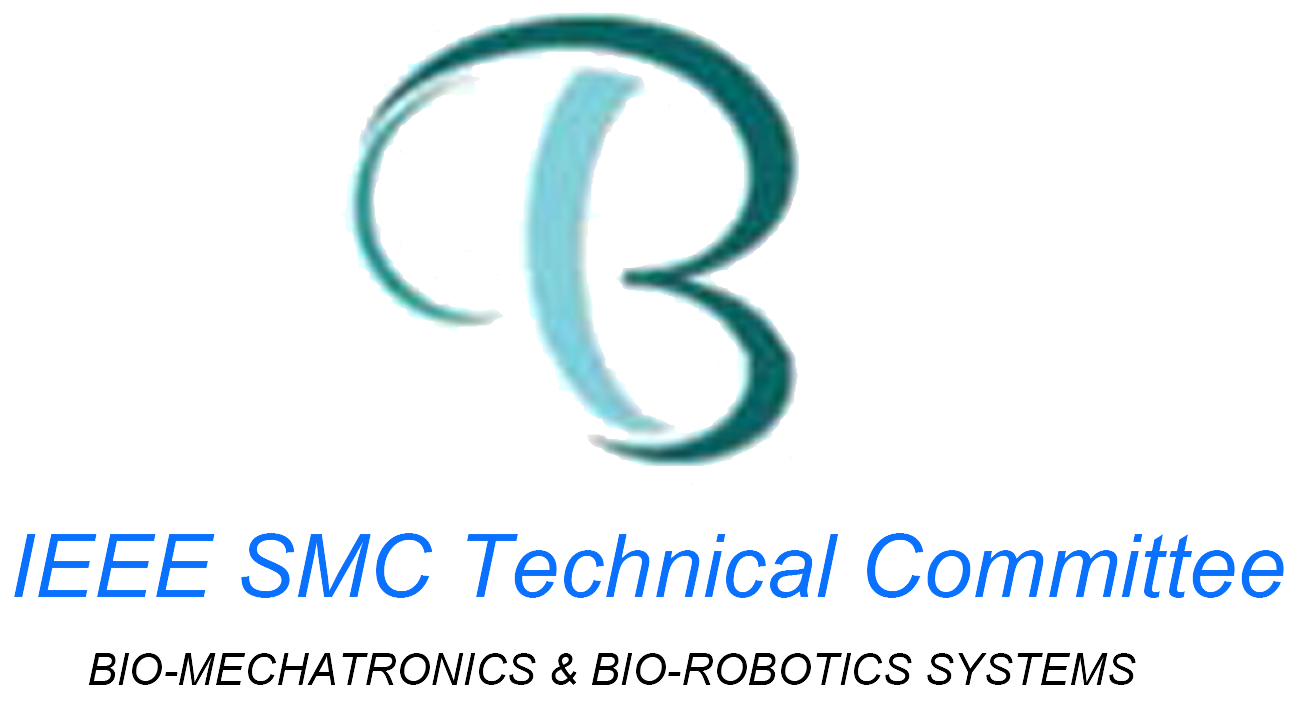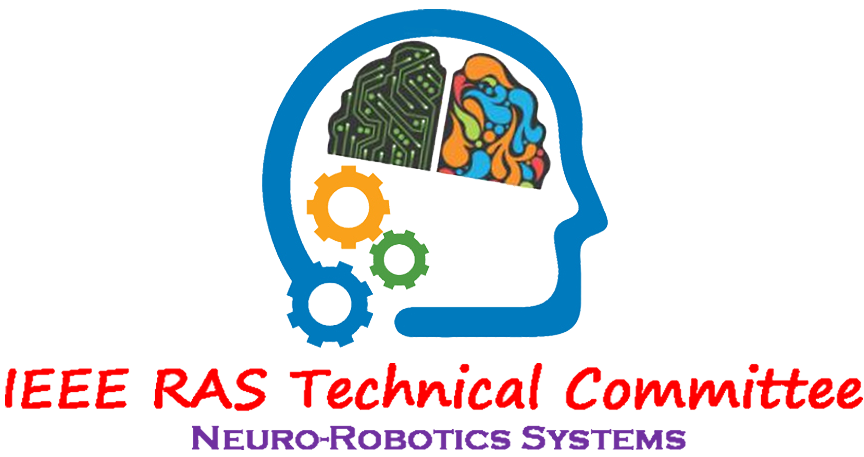IEEE Transactions on Cognitive and Developmental Systems
Special Issue on Human Friendly Cognitive Robotics
I.AIM AND SCOPE
This special issue on Human Friendly Cognitive Robotics is primarily concerned with the recent demands in the development of human-friendly robots. The study of this topic aims to find methods and technologies to make human-robot interaction in a highly intelligent and friendly manner. Cognition plays an important role for safe and dependable robots operating in close proximity to humans or directly interact with them in a wide range of domains. These robots are also expected to develop models to characterize individuals interacting with them, such that their interactive behaviors can be personalized to maximize individual user experience. Driven by these targets, this special issue aims to promote research work on human friendly robotics from the cognitive and developmental views.
With the development of robotic technology in various fields from factory assembly line to healthcare and rehabilitation, it is hard for the conventional robots of low level cognition to meet the requirements. The relationship between humans and robots has changed significantly in recent years. The transformation from conventional robots working isolated behind safety cages to collaborative robots interacting closely with human partners faces a number of challenges that should be addressed urgently. The new generation of collaborative robots are expected to be highly intelligent to learn new skills and to perform novel tasks with their partners through interaction. A promising way towards this goal is to integrate cognitive functions and developmental learning techniques into the processes of interaction between robots, humans and the environments. This special issue serves this purpose to propose and discuss cognition-based solutions to improve the state-of-art human-robot friendly interaction.
The researchers from different backgrounds (such as robotics, computer science, neuroscience and psychology) are welcome to share their methodologies, computational models and technologies to enhance the cognitive functionalities and intelligence of human-robot systems for better interaction performance.
II.THEMES
The topics of this special issue aim to cover both explorations of fundamental theory and investigations of practical application for human friendly cognitive robots. The primary list of topics include but not limited to the followings.
Theoretical exploration oriented topics:
Practical application oriented topics:
Practical application oriented topics of this special issue could be, cognitive control design with coupled action and perception, robot learning by demonstration enhanced by cognition, immersive teleoperation with multimodal human- robot communication, bio-inspired interface design for friendly human robot interaction, human behavior monitoring and analysis for collaborative robots, rehabilitation robot and assistant devices with cognitive functions, healthcare robot with cognitive adaptations , industrial collaborative robots with intention recognition, surgery robot with cooperative task execution and sliding autonomy, caring robots with personalized cognitive interactions.
III.SUBMISSION
Manuscripts should be prepared according to the “Information for Authors” of the journal found at http://cis.ieee.org/component/content/article/7/131-ieeetransactions-on-autonomous-mental-developmentinformation-for-authors.html.
Submissions must be done through the IEEE TCDS Manuscript center: https://mc.manuscriptcentral.com/tcds-ieee. Please select the category “SI: Human Friendly Cognitive Robotics”.
IV.IMPORTANT DATES
30th July 2019 – Paper submission deadline
30th September 2019 – First review deadline
30th October 2019 – Revised papers submission
30th November 2019 – Final notification for authors
Call for Papers
SCIENCE CHINA Information Sciences
Special Issue on Bio-Robotic Systems: Modeling, Design, Control and Perception
The advanced technology of bio-robotic systems is concentrated in bio-inspired modelling, expectation and intention understanding, system design, information interaction, intelligent control and learning. As a result of the development of these AI technologies, bio-robotic systems are developing towards the direction of autonomy and intelligence. In some respects, it is close to the human level. Due to advanced models and improved hardware computing capabilities, many bio-robotic systems applications have emerged, such as aerial robotic system, rehabilitation robotic system, medical healthcare robotic system, prosthetic device system, assistive robotic system, wearable robotic system. The research of “bio-robotic systems with intelligent perception and learning ability” is a development direction of robotic systems technology. The special issue addresses a broad spectrum of topics ranging from information perception and interaction for various bio-robotic systems such as aerial robotic system, medical healthcare robotic system, prosthetic device system, assistive robotic system, wearable robotic system to the optimization of the learning algorithm. Special attention should be paid to how to deal with the huge amount of information perception, optimize the learning ability, and achieve the high accurate control performance. This includes sensing, information interaction, learning control, iterative learning, deep learning and reinforcement learning. The special issue publishes original papers of innovative ideas and concepts, new discoveries and improvements, and novel applications to the field of bio-robotic systems. Topics explored in this special issue include, but are not limited to:
Important Dates:
Manuscript submission deadline: August 31, 2019
Acceptance notification: November 30, 2019
Final manuscripts due: December 31, 2019
Publication: May 1, 2020
Call for Papers
Adcanced Robotics Journal
Special Issue on Neuro-Robotics: From Brain Machine Interfaces to Rehabilitation Robotics
Theme of the special issue
Neuro-robotics is one of the most multidisciplinary fields of the last decades, fusing information and knowledge from neuroscience, engineering and computer science. This special issue focuses on the results from the strategic alliance between Neuroscience and Robotics that help the scientific community to better understand the brain as well as design robotic devices and algorithms for interfacing humans and robots. The special issue focuses on human-machine interfaces for performance augmentation, which can be seen as augmentation of abilities of healthy subjects or assistance in case of the mobility impaired, and the inverse problem, i.e. how we can use robotic devices that physically interact with the human body, in order (a) to understand human motor control and (b) to provide therapy to neurologically impaired people or people with disabilities.
The researchers from different backgrounds (such as robotics, computer science, neuroscience and psychology) are welcome to share their methodologies, computational models and technologies to enhance the cognitive functionalities and intelligence of next generation robot systems for better interaction performance.
Relevance/importance and need in the present context
With the development of robotic technology in various fields from factory assembly line to our daily life, it is hard for the conventional robots of low level cognition to meet the requirements. The relationship between humans and robots has changed significantly in recent years. The transformation from conventional robots working isolated behind safety cages to neuro-robotics closely with human faces a number of challenges that should be addressed urgently. The new generation of neuro-robotics are expected to be highly intelligent to learn new skills and to perform novel tasks with their partners through various interactions. A promising way towards this goal is to integrate cognitive functions and developmental learning techniques into the processes of interaction between robots, humans and the environments. This special issue serves this purpose to propose and discuss cognition-based solutions to human brain as well as design robotic devices and algorithms for interfacing humans and robots.
List of specific topics
The primary list of topics covers, but not limited to the followings:
Suggested timeline
Submission guidelines
The full-length manuscript (either PDF file or MS word file) should be sent by October 31, 2019 to ScholarOne Manuscript System https://mc.manuscriptcentral.com/tadr. Sample form of the manuscript as well as the Instruction for Authors is available at https://www.tandfonline.com/action/authorSubmission?journalCode=tadr20&page=instructions.
Journal of Robotics and Autonomous Systems
Special Issue on Skill Transfer Learning for Autonomous Robots and Human-Robot Cooperation
Motivation and Objectives
Human and many animals usually preserve the skill knowledge learned in the past and utilize it to help future learning and problem solving. Without the ability to summarize and update skill knowledge, a robot typically needs large amounts of training samples, which may be inaccessible in rapidly-changing environments. Therefore, the skill transfer learning, which mimics the human learning process and capability, becomes an important component for autonomous robots. In addition, robots should persistently learn skill from the human demonstrations. Different from conventional machine learning, skill transfer learning focuses continuous learning process in changing conditions. Although skill transfer learning has attracted attentions from diversified communities, its cognitive mechanism and applications in autonomous robots have not been fully exploited, and many challenging problems remain unsolved.
This special issue mainly focuses on skill transfer learning for autonomous robots and human-robot cooperation, addressing both original algorithmic development and new applications of cognitive autonomous learning. We are soliciting original contributions, of leading researchers and practitioners from academia as well as industry, which address a wide range of theoretical and application issues in skill transfer learning. Topics for this special issue include, but are not limited to:
List of topics
Important Dates:
First submission date: June 1, 2019
Submission deadline: October 1, 2019
Final decision notification: May 1, 2020












